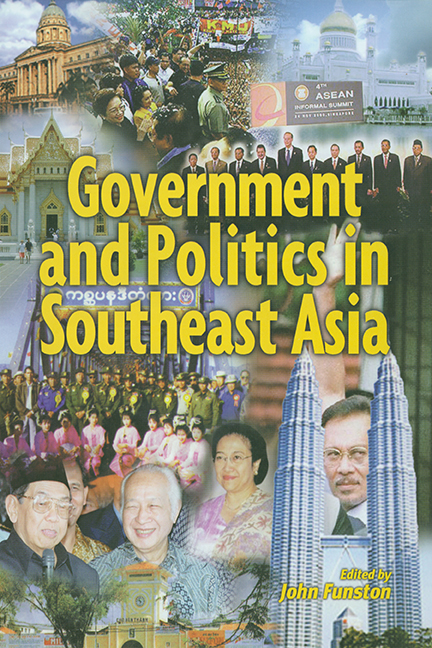1 - BRUNEI
Malay, Monarchical, Micro-state
Published online by Cambridge University Press: 21 October 2015
Summary
INTRODUCTION
The micro-state Brunei Darussalam (“The Abode of Peace”) regained its full independence on 1 January 1984. It is the rump of a once extensive empire covering Borneo and surrounding islands, whose “Golden Age” is linked to the name of Sultan Bolkiah (late 15th or early 16th century). Bruneian influence began to erode after Spanish settlement in the Philippines in the late 16th century, then at the hands of a dynamic former vassal, Sulu, in the mid-17th. In the 19th it lost most of its territories on Borneo to Sarawak under the “White Rajas” (Brookes) and North Borneo (Sabah) under Chartered Company rule. Today's Brunei is totally enclosed — as well as bisected — by Sarawak (Malaysia), except to seaward on the north side.
Brunei was saved from extinction by the establishment of a British “Residency” in 1906, a system of classic Indirect Rule which lasted until 1959 (apart from the Japanese interlude). In 1959, thanks mainly to the strong will and dynastic vision of Sultan Omar Ali Saifuddin III, but in part because Britain feared the Indonesian-style radical nationalism of the Parti Rakyat Brunei (PRB or Brunei People's Party), the Colonial Office yielded executive power over domestic administration to the monarchy. This was contrary to London's original intention of establishing elected government, corresponding to developments in the neighbouring Federation of Malaya, and Singapore.
- Type
- Chapter
- Information
- Government and Politics in Southeast Asia , pp. 1 - 35Publisher: ISEAS–Yusof Ishak InstitutePrint publication year: 2001



